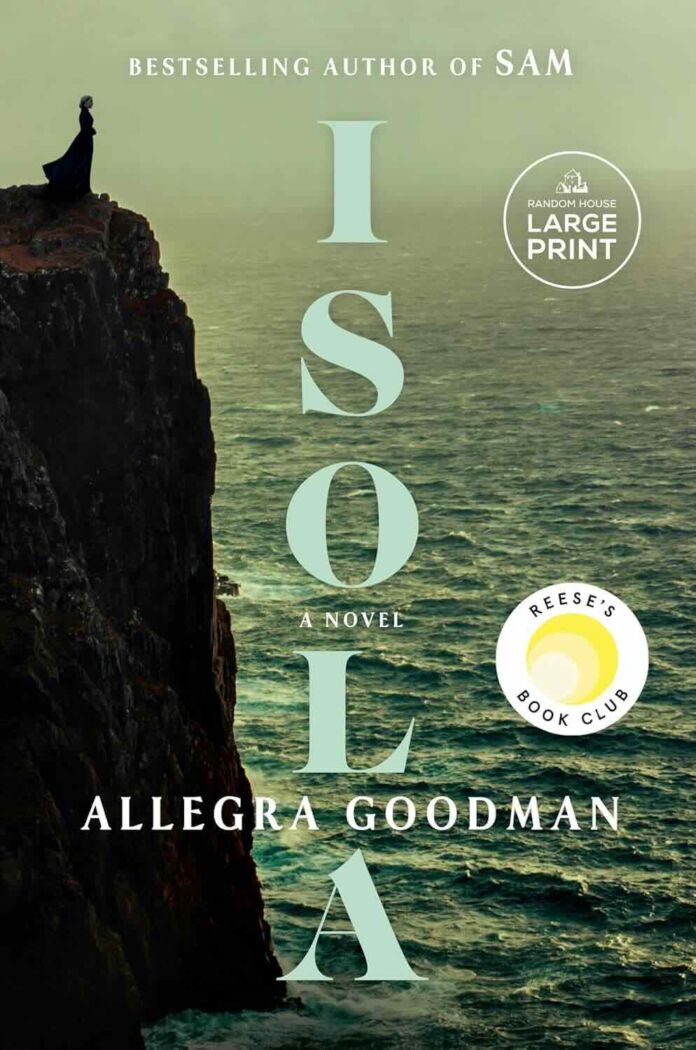In her latest novel Isola, Allegra Goodman crafts an extraordinary historical narrative that transports readers to 16th-century France and the untamed wilderness of New France (modern-day Canada). Drawing inspiration from the true story of Marguerite de la Rocque, Goodman weaves a rich tapestry of love, loss, and resilience that resonates deeply with contemporary readers while remaining faithful to its historical setting.
A Tale of Two Worlds
The story begins in the opulent château of Périgord, where young Marguerite, orphaned but wealthy, lives under the guardianship of her father’s cousin, Jean-François de la Rocque de Roberval. Goodman masterfully establishes the stark contrast between Marguerite’s privileged early life and the brutal survival story that follows, creating a compelling narrative arc that explores themes of class, gender, and power.
Character Development and Relationships
Goodman’s character development shines particularly bright in this work. Marguerite’s transformation from a sheltered noblewoman to a fierce survivor is both believable and inspiring. The relationship between Marguerite and Auguste, Roberval’s secretary, unfolds with delicate precision, avoiding the typical pitfalls of historical romance while maintaining emotional authenticity.
The supporting characters are equally well-drawn. Damienne, Marguerite’s devoted nurse, brings depth and humanity to the story, while Claire and her mother provide important perspectives on women’s roles in 16th-century French society. Roberval himself is a masterfully crafted antagonist—complex, menacing, and ultimately human in his flaws.
Prose and Historical Detail
Goodman’s prose is elegant yet accessible, matching the period setting while remaining engaging for modern readers. Her attention to historical detail is impressive, from the intricate descriptions of court fashion to the harsh realities of colonial exploration. The author’s research is evident but never overwhelming, seamlessly integrated into the narrative flow.
Strengths of the Novel
- Authentic historical atmosphere
- Complex, well-developed characters
- Beautiful prose that serves the story
- Powerful themes of survival and self-discovery
- Strong female relationships and perspectives
Areas for Improvement
While Isola by Allegra Goodman is a remarkable achievement, there are a few aspects that could have been stronger:
- The pacing in the middle section occasionally slows
- Some secondary characters at court could have been more fully developed
- The political context of the period could have been explored more deeply
- Certain plot points rely heavily on coincidence
Historical Context and Contemporary Relevance
Goodman skillfully uses the historical setting to explore timeless themes. The novel’s examination of power dynamics, gender roles, and survival resonates strongly with contemporary discussions about women’s agency and resilience. The author achieves this without sacrificing historical accuracy or falling into anachronism.
Literary Merit and Style
The novel’s structure is particularly noteworthy, with Goodman employing a linear narrative that nevertheless creates tension through careful revelation of character and circumstance. Her use of first-person narration brings immediacy to Marguerite’s experience while allowing for moments of reflection and growth.
Comparison to Other Works
Readers familiar with Goodman’s previous works, particularly Sam and The Cookbook Collector, will recognize her ability to create complex female characters and explore their inner lives with sensitivity and depth. Isola represents a departure in setting but maintains the author’s characteristic insight into human nature.
The novel invites comparison with other historical survival narratives like Hannah Kent’s Burial Rites and Geraldine Brooks’s Year of Wonders, though Goodman’s approach is distinctly her own.
Impact and Significance
Isola by Allegra Goodman makes a significant contribution to historical fiction, particularly in its portrayal of women’s experiences in the Age of Exploration. The novel succeeds in bringing to life a fascinating historical figure while creating a compelling narrative that speaks to contemporary readers.
Writing Craft and Technique
Goodman demonstrates remarkable skill in several areas:
- Seamless integration of historical detail
- Strong sense of place and atmosphere
- Effective use of sensory detail
- Well-paced revelation of character
- Balanced handling of internal and external conflict
Verdict and Recommendation
Isola by Allegra Goodman earns a strong recommendation for its compelling blend of historical detail, psychological insight, and narrative craft. While not without minor flaws, the novel succeeds admirably in its ambitious goals. It will appeal to readers of historical fiction, literary fiction, and anyone interested in stories of survival and transformation.
Target Audience
This book will particularly appeal to:
- Readers of literary and historical fiction
- Those interested in women’s historical experiences
- Fans of survival narratives
- Readers who appreciate complex character development
- Anyone interested in early colonial history
Final Thoughts
Isola represents a significant achievement in historical fiction. Goodman has created a work that is both historically authentic and emotionally resonant, bringing to life a fascinating episode in colonial history while exploring timeless themes of survival, love, and self-discovery.
The novel’s greatest strength lies in its ability to make a distant historical event feel immediate and relevant while maintaining its period authenticity. Through Marguerite’s journey from privileged noblewoman to resourceful survivor, Goodman explores questions of identity, faith, and resilience that resonate with contemporary readers.
Despite minor shortcomings, Isola stands as a powerful addition to the historical fiction genre and a worthy addition to Allegra Goodman’s impressive body of work. It successfully combines meticulous historical research with compelling storytelling, creating a novel that is both intellectually satisfying and emotionally engaging.





